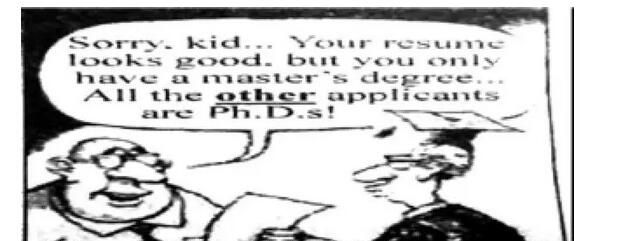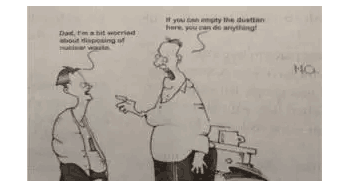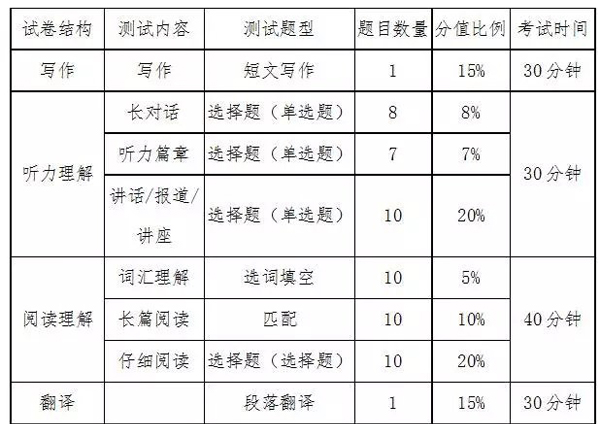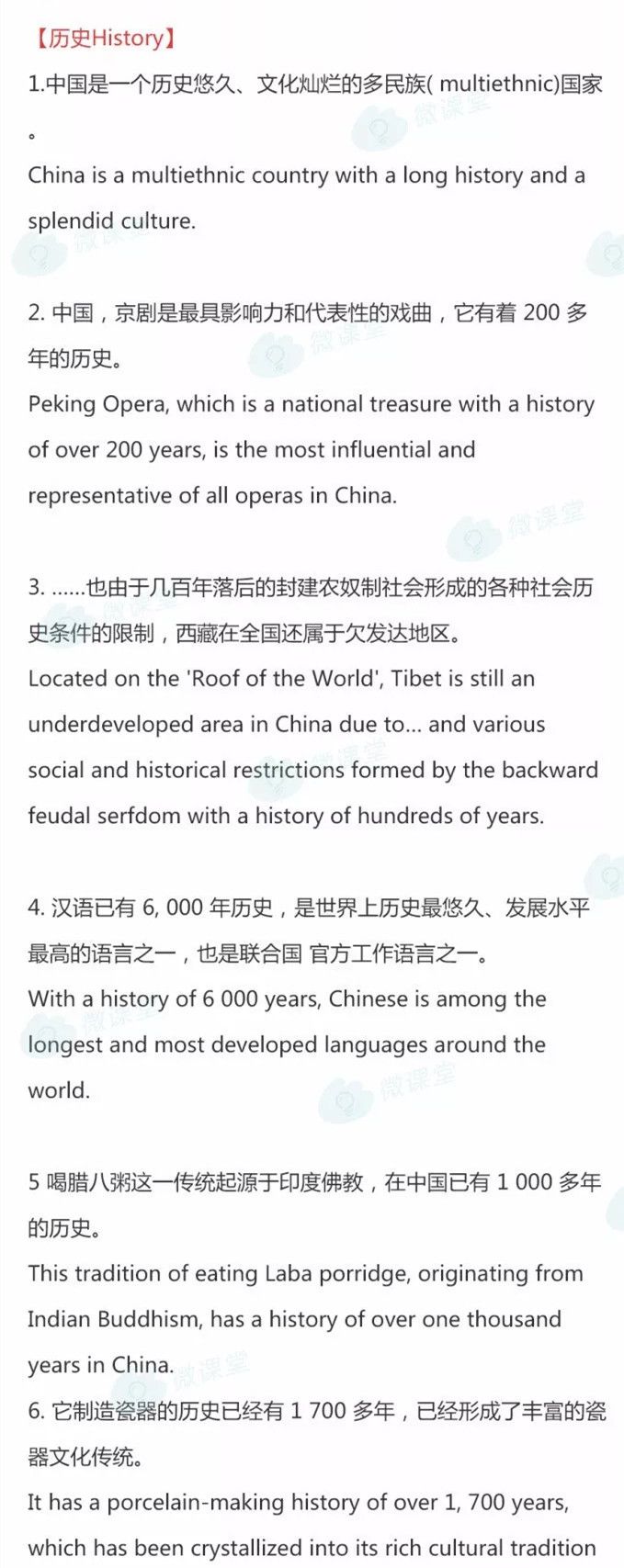2007版--完形(强化)-1
完形填空全真试题 (1994—2004年)Passage 1 The first and smallest unit that can be discussed in relation to language is the word. In speaking, the choice of words is 41 the utmost importance. Proper selection will eliminate one source of 42 breakdown in the communication cycle. Too often, careless use of words 43 a meeting of the minds of the speaker and listener. The words used by the speaker may 44 unfavorable reactions in the listener 45 interfere with his comprehension; hence, the transmission-reception system breaks down. 46 inaccurate or indefinite words may make 47 difficult for the listener to understand the 48 which is being transmitted to him. The speaker who does not have specific words in his working vocabulary may be 49 to explain or describe in a 50 that can be understood by his listeners. 41.[A] of [B] at [C] for [D] on 42.[A] inaccessible [B] timely [C] likely [D] invalid 43.[A] encourages [B] prevents [C] destroy [D] offers 44.[A] pass out [B] take away [C] back up [D] stir up 45.[A] who [B] as [C] which [D] what 46.[A] Moreover [B] However [C] Preliminarily [D] Unexpectedly 47.[A] that [B] it [C] so [D] this 48.[A] speech [B]sense [C] message [D] meaning 49.[A] obscure [B] difficult [C] impossible [D] unable 50.[A] case [B] means [C]method [D]way Passage 2 Sleep is divided into periods of so-called REM sleep, characterized by rapid eye movements and dreaming, and longer periods of non-REM sleep. 41 kind of sleep is at all well understood, but REM sleep is 42 to serve some restorative function of the brain. The purpose of non-REM sleep is even more 43 . The new experiments, such as these 44 for the first time at a recent meeting of the Society for Sleep Research in Minneapolis, suggest fascinating explanations 45 of non-REM sleep. For example, it has long been known that total sleep 46 is 100 percent fatal to rats, yet, 47 examination of the dead bodies, the animals look completely normal. A researcher has now 48 the mystery of why the animals die. The rats 49 bacterial infections of the blood, 50 their immune systems — the self-protecting mechanism against diseases-had crashed. 41.[A] Either [B] Neither [C] Each [D] Any 42.[A] intended [B] required [C] assumed [D] inferred 43.[A] subtle [B] obvious [C] mysterious [D] doubtful 44.[A] maintained [B] described [C] settled [D] afforded 45.[A] in the light [B] by virtue [C] with the exception [D] for the purpose 46.[A] reduction [B] destruction [C] deprivation [D] restriction 47.[A] upon [B] by [C] through [D] with 48.[A] paid attention to [B] caught sight of [C] laid emphasis on [D] cast light on 49.[A] developed [B] produced [C] stimulated [D] induced 50.[A] if [B] as if [C] only if [D] if only Passage 3 Vitamins are organic compounds necessary in small amounts in the diet for the normal growth and maintenance of life of animals, including man. They do not provide energy, 41 do they construct or build any part of the body. They are needed for 42 foods into energy and body maintenance. There are thirteen or more of them, and if 43 is missing a deficiency disease becomes 44 . Vitamins are similar because they are made of the same elements — usually carbon, hydrogen, oxygen, and 45 nitrogen. They are different 46 their elements are arranged differently, and each vitamin 47 one or more specific functions in the body. 48 enough vitamins is essential to life, although the body has no nutritional use for 49 vitamins. Many people, 50 . believe in being on the "safe side" and thus take extra vitamins. However, a well-balanced diet will usually meet all the body' s vitamin needs. 41.[A]either [B]so [C]nor [D]never 42.[A]shifting [B]transferring [C]altering [D]transforming 43.[A]any [B]some [C]anything [D]something 44.[A]serious [B]apparent [C]severe [D]fatal 45.[A]mostly [B]partially [C]sometimes [D]rarely 46.[A]in that [B]so that [C]such that [D]except that 47.[A]undertakes [B]holds [C]plays [D]performs 48.[A]Supplying [B]Getting [C]Providing [D]Furnishing 49.[A]exceptional [B]exceeding [C]excess [D]external 50.[A]nevertheless [B]therefore [C]moreover [D]meanwhile Passage 4 Manpower Inc, with 560,000 workers, is the world's largest temporary employment agency. Every morning, its people 41 into the offices and factories of America, seeking a day's work for a day's pay. One day at a time. 42 industrial giants like General Motors and IBM struggle to survive 43 reducing the number of employees, Manpower, based in Milwaukee, Wisconsin, is booming. 44 its economy continues to recover, the US is increasingly becoming a nation of part-timers and temporary workers. This "45" work force is the most important 46 in American business today, and it is 47 changing the relationship between people and their jobs. The phenomenon provides a way for companies to remain globally competitive 48 avoiding market cycles and the growing burdens 49 by employment rules, healthcare costs and pension plans. For workers it can mean an end to the security, benefits and sense of 50 that came from being a loyal employee. 41.[A] swarm [B] stride [C] separate [D] slip 42.[A] For [B] Because [C] As [D] Since 43.[A] from [B] in [C] on [D] by 44.[A] Even though [B] Now that [C] If only [D] Provided that 45.[A] durable [B] disposable [C] available [D] transferable 46.[A] approach [B] flow [C] fashion [D] trend 47.[A] instantly [B] reversely [C] fundamentally [D] sufficiently 48.[A] but [B] while [C] and [D] whereas 49.[A] imposed [B] restricted [C] illustrated [D] confined 50.[A] excitement [B] conviction [C] enthusiasm [D] important Passage 5 Until recently most historians spoke very critically of the Industrial Revolution. They 41 that in the long run industrialization greatly raised the standard of living for the 42 man. But they insisted that its 43 results during the period from 1750 to 1850 were widespread poverty and misery for the 44 of the English population. 45 contrast, they saw in the preceding hundred years from 1650 to 1750, when England was still a 46 agricultural country, a period of great abundance and prosperity. This view, 47 . is generally thought to be wrong. Specialists 48 history and economics, have 49 two things: that the period from 1650 to 1750 was 50 by great poverty, and that industrialization certainly did not worsen and may have actually improved the conditions for the majority of the populace. 41.[A] admitted [B] believed [C] claimed [D] predicted 42.[A] plain [B] average [C] mean [D] normal 43.[A] momentary [B] prompt [C] instant [D] immediate 44.[A] bulk [B] host [C] gross [D] magnitude 45.[A] on [B] With [C] For [D] By 46.[A] broadly [B] thoroughly [C] generally [D] completely 47.[A] however [B] meanwhile [C] therefore [D] moreover 48.[A] at [B] in [C] about [D] for 49.[A] manifested [B] approved [C] shown [D] speculated 50.[A] noted [B] impressed [C] labeled [D] marked Passage 6 Industrial safety does not just happen. Companies 41 low accident rates plan their safety programs, work hard to organize them, and continue working to keep them 42 and active. When the work is well done, a 43 of accident-free operations is established 44 time lost due to injuries is kept at a minimum. Successful safety programs may 45 greatly in the emphasis placed on certain aspects of the program. Some place great emphasis on mechanical guarding. Others stress safe work practices by 46 rules or regulations. 47 others depend on an emotional appeal to the worker. But, there are certain basic ideas that must be used in every program if maximum results are to be obtained. There can be no question about the value of a safety program. From a financial standpoint alone, safety 48 . The fewer the injury 49 . the better the workman's insurance rate. This may mean the difference between operating at 50 or at a loss. 41.[A] at [B] in [C] on [D] with 42.[A] alive [B] vivid [C] mobile [D] diverse 43.[A] regulation [B] climate [C] circumstance [D] requirement 44.[A] where [B] how [C]what [D] unless 45.[A] alter [B] differ [C] shift [D] distinguish 46.[A] constituting [B] aggravating [C] observing [D] justifying 47.[A] some [B] Many [C] Even [D] still 48.[A] comes off [B] turns up [C] pays off [D] holds up 49.[A] claims [B] reports [C] declarations [D] proclamations 50.[A] an advantage [B] a benefit [C] an interest [D] a profit Passage 7 If a farmer wishes to succeed, he must try to keep a wide gap between his consumption and his production. He must store a large quantity of grain 41 consuming all his grain immediately. He can continue to support himself and his family 42 he produces a surplus. He must use this surplus in three ways: as seed for sowing, as an insurance 43 the unpredictable effects of bad weather and as a commodity which he must sell in order to 44 old agricultural implements and obtain chemical fertilizers to 45 the soil. He may also need money to construct irrigation 46 and improve his farm in other ways. If no surplus is .available, a farmer cannot be 47 .He must either sell some of his property or 48 extra funds in the form of loans. Naturally he will try to borrow money at a low 49 of interest, but loans of this kind are not 50 obtainable. 41.[A] other than [B] as well as [C] instead of [D] more than 42.[A] only of [B] much as [C] long before [D] ever since 43.[A] for [B] against [C] of [D] towards 44.[A] replace [B] purchase [C] supplement [D] dispose 45.[A] enhance [B] mix [C] feed [D] raise 46.[A] vessels [B] routes [C] paths [D] channels 47.[A] self-confident [B] self-sufficient [C] self-satisfied [D] self-restrained 48.[A] search [B] save [C] offer [D] seek 49.[A] proportion [B] percentage [C] rate [D] ratio 50.[A] genuinely [B] obviously [C] presumably [D] frequently Passage 8 The government is to ban payments to witnesses by newspapers seeking to buy up people involved in prominent cases 31 the trial of Rosemary West. In a significant 32 of legal controls over the press, Lord Irvine, the Lord Chancellor, will introduce a 33 bill that will propose making payments to witnesses 34 and will strictly control the amount of 35 that can be given to a case 36 a trial begins. In a letter to Gerald Kaufman, chairman of the House of Commons media select committee, Lord Irvine said he 37 with a committee report this year which said that self-regulation did not 38 sufficient control. 39 of the letter came two days after Lord Irvine caused a 40 of media protest when he said the 41 of privacy controls contained in European legislation would be left to judges 42 to Parliament. The Lord Chancellor said introduction of the Human Rights Bill, which 43 the European Convention on Human Rights legally 44 in Britain, laid down that everybody was 45 to privacy and that public figures could go to court to protect themselves and their families. "Press freedoms will be in safe hands 46 our British judges," he said. Witness payments became an 47 after West sentenced to 10 life sentences in 1995. Up to 19 witnesses were 48 to have received payments for telling their stories to newspapers. Concerns were raised 49 witnesses might be encouraged to exaggerate their stories in court to 50 guilty verdict. 31.[A] as to [B] for instance [C] in particular [D] such as 32.[A] tightening [B] intensifying [C] focusing [D] fastening 33.[A]sketch [B] rough [C] preliminary [D] draft 34.[A]illogical [B] illegal [C] improbable [D] improper 35.[A]publicity [B] penalty [C] popularity [D] peculiarity 36.[A]since [B] if [C] before [D] as 37.[A]sided [B] shared [C] complied [D] agreed 38.[A]present [B] offer [C] manifest [D] indicate 39.[A]Release [B] Publication [C] Printing [D] Exposure 40.[A]storm [B] rage [C] flare [D] flash 41.[A]translation [B] interoperation [C] exhibition [D] demonstration 42.[A]better than [B] other than [C] rather than [D] sooner than 43.[A]changes [B] makes [C] sets [D] turns 44.[A] binding [B] convincing [C] restraining [D] sustaining 45.[A] authorized [B] credited [C] entitled [D] qualified 46.[A] with [B] to [C] from [D] by 47.[A] impact [B] incident [C] inference [D] issue 48.[A] stated [B] remarked [C] said [D] told 49.[A] what [B] when [C] which [D] that 50.[A] assure [B] confide [C] ensure [D] guarantee Passage 9 Comparisons were drawn between the development of television in the 20th century and the diffusion of printing in the 15th and 16th centuries. Yet much had happened 21 . As was discussed before, it was not 22 the 19th century that the newspaper became the dominant pre-electronic 23 , following in the wake of the pamphlet and the book and in the 24 of the periodical. It was during the same time that the communications revolution 25 up, beginning with transport, the railway, and leading 26 through the telegraph, the telephone, radio, and motion pictures 27 the 20th century world of the motor car and the airplane. Not everyone sees that process in 28 It is important to do so. It is generally recognized, 29 , that the introduction of the computer in the early 20th century, 30 by the invention of the integrated circuit during the 1960s,radically changed the process, 31 its impact on the media was not immediately 32 . As time went by, computers became smaller and more powerful, and they became " personal" too, as well as 33 , with display becoming sharper and storage 34 increasing. They were thought of, like people, 35 generations, with the distance between generations much 36 . It was within the computer age that the term "information society" began to be widely used to describe the 37 within which we now live. The communications revolution has 38 both work and leisure and how we think and feel both about place and time, but there have been 39 views about its economic, political, social and cultural implications. "Benefits" have been weighed 40 "harmful" outcomes. And generalizations have proved difficult. 21.[A] between [B] before [C] since [D] later 22.[A] after [B] by [C] during [D] until 23.[A] means [B] method [C] medium [D] measure 24.[A] process [B] company [C] light [D] form 25.[A] gathered [B] speeded [C] worked [D] picked 26.[A] on [B] out [C] over [D] off 27.[A] of [B] for [C] beyond [D] into 28.[A] concept [B] dimension [C] effect [D] perspective 29.[A] indeed [B] hence [C] however [D] therefore 30.[A] brought [B] followed [C] stimulated [D] characterized 31.[A] unless [B] since [C] lest [D] although 32.[A] apparent [B] desirable [C] negative [D] plausible 33.[A] institutional [B] universal [C] fundamental [D] instrumental 34.[A] ability [B] capability [C] capacity [D] faculty 35.[A] by means of [B] in terms of [C] with regard to [D] in line with 36.[A] deeper [B] fewer [C] nearer [D] smaller 37.[A] context [B] range [C] scope [D] territory 38.[A] regarded [B] impressed [C] influenced [D] effected 39.[A] competitive [B] controversial [C] distracting [D] irrational 40.[A] above [B] upon [C] against [D] with Passage 10 Teachers need to be aware of the emotional, intellectual, and physical changes that young adults experience. And they also need to give serious 21 to how they can best 22 such changes. Growing bodies need movement and 23 . but not just in ways that emphasize competition. 24 they are adjusting to their new bodies and a whole host of new intellectual and emotional challenges, teenagers are especially self-conscious and need the 25 that comes from achieving success and knowing that their accomplishments are 26 by others. However, the typical teenage lifestyle is already filled with so much competition that it would be 27 to plan activities in which there are more winners than losers, 28 . publishing newsletters with many student-written book reviews, 29 student artwork, and sponsoring book discussion clubs. A variety of small clubs can provide 30 opportunities for leadership, as well as for practice in successful 31 dynamics. Making friends is extremely important to teenagers, and many shy students need the 32 of some kind of organization with a supportive adult 33 visible in the background. In these activities, it is important to remember that young teens have 34 attention spans. A variety of activities should be organized 35 participants can remain active as long as they want and then go on to 36 else without feeling guilty and without letting the other participants 37 . This does not mean that adults must accept irresponsibility. 38 they can help students acquire a sense of commitment by 39 for roles that are within their 40 and their attention spans and by having clearly stated rules. 21. [A] thought [B] idea [C] opinion [D] advice 22. [A] strengthen [B] accommodate [C] stimulate [D] enhance 23. [A] care [B] nutrition [C] exercise [D] leisure 24. [A] if [B] although [C] whereas [D] because 25. [A] assistance [B] guidance [C] confidence [D] tolerance 26. [A] claimed [B] admired [C] ignored [D] surpassed 27. [A] improper [B] risky [C] fair [D] wise 28. [A] in effect [B] as a result [C] for example [D] in a sense 29. [A] displaying [B] describing [C] creating [D] exchanging 30. [A] durable [B] excessive [C] surplus [D] multiple 31. [A] group [B] individual [C] personnel [D] corporation 32. [A] consent [B] insurance [C] admission [D] security 33. [A] particularly [B] barely [C] definitely [D] rarely 34. [A] similar [B] long [C] different [D] short 35. [A] if only [B] now that [C] so that [D] even if 36. [A] everything [B] anything [C] nothing [D] something 37. [A] off [B] down [C] out [D] alone 38. [A] on the contrary [B] on the average [C] on the whole [D] on the other hand 39. [A] making [B] standing [C] planning [D] taking 40. [A] capabilities [B] responsibilities [C] proficiency [D] efficiency Passage 11 Many theories concerning the causes of juvenile delinquency (crimes committed by young people) focus either on the individual or on society as the major contributing influence. Theories 21 on the individual suggest that children engage in criminal behavior 22 they were not sufficiently penalized for previous misdeeds or that they have learned criminal behavior through 23 with others. Theories focusing on the role of society suggest that children commit crimes in 24 to their failure to rise above their socioeconomic status 25 as a rejection of middle-class values. Most theories of juvenile delinquency have focused on children from disadvantaged families, 26 the fact that children from wealthy homes also commit crimes. The latter may commit crimes 27 lack of adequate parental control. All theories, however, are tentative and are 28 to criticism. Changes in the social structure may indirectly 29 juvenile crime rates. For example, changes in the economy that 30 to fewer job opportunities for youth and rising unemployment 31 make gainful employment increasingly difficult to obtain. The resulting discontent may in 32 lead more youths into criminal behavior. Families have also 33 changes these years. More families consist of one parent households or two working parents; 34 , children are likely to have less supervision at home 35 was common in the traditional family 36 . This lack of parental supervision is thought to be an influence on juvenile crime rates. Other 37 causes of offensive acts include frustration or failure in school, the increased 38 of drugs and alcohol, and the growing 39 of child abuse and child neglect. All these conditions tend to increase the probability of a child committing a criminal act, 40 a direct causal relationship has not yet been established. 21.[A] acting [B] relying [C] centering [D] commenting 22.[A] before [B] unless [C] until [D] because 23.[A] interactions [B] assimilation [C] cooperation [D] consultation 24.[A] return [B] reply [C] reference [D] response 25.[A] or [B] but rather [C] but [D] or else 26.[A] considering [B] ignoring [C] highlighting [D] discarding 27.[A] on [B] in [C] for [D] with 28.[A] immune [B] resistant [C] sensitive [D] subject 29. [A] affect [B] reduce [C] check [D] reflect 30. [A] point [B] lead [C] come [D] amount 31. [A] in general [B] on average [C] by contrast [D] at length 32. [A] case [B] short [C] turn [D] essence 33. [A] survived [B] noticed [C] undertaken [D] experienced 34. [A] contrarily [B] consequently [C]similar [D] simultaneously 35. [A] than [B] that [C] which [D] as 36. [A] system [B] structure [C] concept [D] heritage 37. [A] assessable [B] identifiable [C] negligible [D] incredible 38. [A] expense [B] restriction [C] allocation [D] availability 39. [A] incidence [B] awareness [C] exposure [D] popularity 40. [A] provided [B] since [C] although [D] supposing Passage 1.ACBDC ABCDD Passage 2.BCCBD CADAB Passage 3.CDABC ADBCA
Passage 4. ACDAB DCBAD Passage 5. ABDAD DABCD Passage 6. DABAB CDCAD Passage 7. CABAC DBDCD Passage 8. DADBA CDBBA BCBAC ADCDC Passage 9. ADCBB ADDCB DAACB DACBC Passage 10. ABCDC BDCAD ADBDC DBACA Passage 11. CDADA BCDAB ACDBA BBDAC
|








